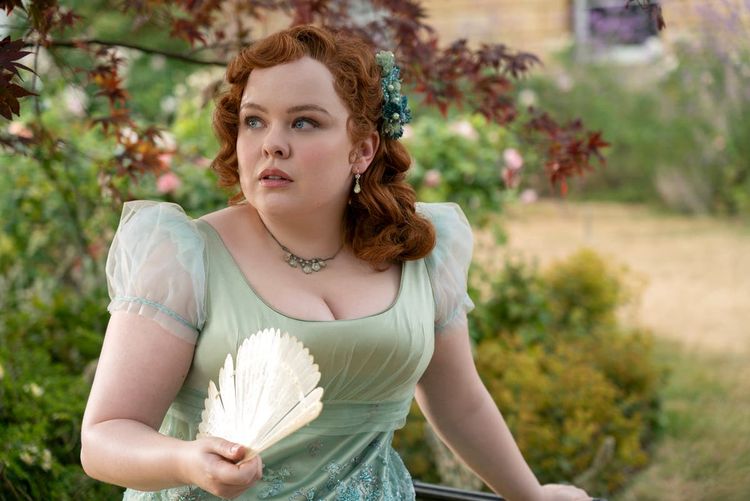Nicola Coughlan is superb in Bridgerton season 3 – but Netflix hit is losing its bite

Get Breaking News Alerts For Free In Real Time! Signup Now For Our Emails
Join Our Email List For Breaking News – It's Free!
The Bridgertons are a historical family from 1800s London who are well-respected and flourishing within society. They are part of the Ton, which is a group of wealthy and high-class individuals who are focused on finding suitable partners for marriage. The Bridgertons have eight children, providing many chances for advancement and entertainment for viewers on Netflix. However, some may wonder if the family will lose some of its charm upon their return after a long two-year hiatus.

Now that the older daughter and son have been wed, the focus of Bridgerton shifts to Colin (played by Luke Newton) who is a sensitive character. Even though Colin is a Bridgerton, which is highly esteemed and desirable, according to Baroness Featherington (played by Polly Walker), the real star of the show is Penelope (played by Nicola Coughlan), the youngest Featherington sister who enjoys reading books and is responsible for Lady Whistledown's scandalous newspaper. Colin, who has just returned from traveling through Europe, decides to help Penelope with her love life by giving her advice. As their meddling progresses, Penelope's feelings for Colin become more apparent and he begins to have feelings for her as well.
The current season of Bridgerton follows a pattern similar to that of a Jane Austen novel. In the first season, a proud duke learned to let go of his defenses, echoing themes from Pride and Prejudice. The second season featured two sisters with distinct yet complementary romantic qualities, reminiscent of Sense and Sensibility. In the third season, the storyline is based on Emma. When Colin mentions the book to his sister, Eloise, she surprises him by saying that she's changed her mind and become interested in love stories. Emma's focus on the dangers of neglecting your own wishes while prioritizing others starts to become a prominent theme in the season's narrative.
While Emma is considered a classic novel of the 19th century, the third chapter of Bridgerton has a problem. The show has always focused on creating a romantic and captivating atmosphere, particularly with the chemistry between the main characters. However, with the focus shifting to Colin and Penelope, the dynamics have changed. These characters have played significant roles in the show's previous seasons, so the chemistry between them must be realistic and believable. This presents a challenge that the show must overcome to keep viewers engaged.
The issue with Colin is that he's not very interesting compared to the other main characters. Daphne struggles with societal expectations and Anthony is a ladies' man who finally meets his match, but Colin falls short in comparison. It's up to Penelope, who has just lost her friend Eloise after her identity as Lady Whistledown is revealed, to carry the emotional weight of the show. Penelope is played excellently by Coughlan and has always been a standout in Bridgerton. However, making her the main character doesn't do her justice because she's flawed in her actions, using her friends and family to fuel her gossip. The show downplays this issue and expects viewers to overlook it.
One of the very few spicy elements in Bridgerton's overall taste has been removed. Anthony is no longer present as he is away with his wife. This departure leaves an empty space in the Bridgerton cast which is filled by Francesca, Daphne's sister, who is played by Hannah Dodd. Francesca is a young and doe-eyed girl who becomes the unexpected hit of the season. Julie Andrews' narration cryptically announces the arrival of another Bridgerton in this season, but Francesca seems to be very similar to her sister and the rest of the Regency social circle. In the past, Bridgerton had a unique blend of raunchiness mixed with a period drama that stood apart from the clichés often found in matchmaking stories. However, it has now started to move towards these same banal tropes. The writing, never its strongest feature, has become even weaker, while the production design has begun resembling the hyper-saturated, unrealistic visuals created by an AI tool.
This ultimately leads to a production that loyal viewers will eagerly consume, without truly recognizing the nuanced distinctions in flavor. However, while Emma successfully presents a flawed yet endearing protagonist, Bridgerton seems to believe that charm necessitates a complete removal of any roughness. Despite marketing itself as a Jane Austen adaptation with more substance, this latest chapter could benefit from studying its predecessors on how to truly captivate its audience.















































